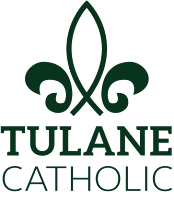V Sunday of Easter (A) – May 18,2014
Gospel reading: John 14: 1-12
The
works of Mexican poet Amado Nervo, who died in 1919, have been described as
being like a "path or way that walks." His poetry and prose
give the impression to be unmovable and fluid at the same time. That
description fascinates me, "a path or way that walks." The path
is firm and solid and dynamic and fluid. The way is direct but with many
turns, clear but fluid.
The
early followers of Christ were called followers of the "Way." The
Christian faith was understood as a way of life. They understood that
life was a journey with Christ as the source and the destiny, the Alpha and the
Omega, the beginning and the end. An
end, yes, but one that always brings new life. In today's
Gospel reading, Jesus, as always, makes it personal: "I am the way, the
truth and the life." The way is not just a path to be walked or followed,
but a Redeemer to be known and trusted. Yes, Jesus is the way, but he is a
"way or path that walks."
In
Christ, the way is neither a rambling, purposeless journey nor a closed, rigid
path. Following Christ has multiple meanings, such as going down a
clear path in a resolute manner, blazing a new trail that requires taking a
risk or, even, joyfully going along from one moment to another. Following
him is about realizing that if we are thankful for where we've been and mindful
of where we are, there will be less room for fear about where we are headed.
Pope
Francis writes: "If we want to understand what faith is, we need to follow
the route is has taken, the path trodden by believers, as witnessed first in
the Old Testament." Not only can we find inspiration in the faith
and struggle of previous generations who struggled and overcame … in faith, but
we can see that the way continues. With the ancient patriarch Abraham as a
primordial model, Pope Francis explains that "faith is an act of
remembrance," not one "fixed on past events but, as the memory of a
promise, faith becomes capable of opening up the future, shedding light on the
path to be taken."
In
Christ, the way is a living one, without beginning or end. He doesn't
ask, "Do you follow it, believe it and live it?" He asks, do
you follow me, believe me and live in me? To make it simple, Jesus asks,
"Do you love me and believe that I love you?" Like the poet's works,
we can say Christ is like the "way that walks." Don't stop
there: Christ is the way that lives.
The same
poet Amado Nervo was fond of the old French proverb, "The song signals the
way." Does that mean the path is as transient as the song and the
notes and lyrics that waft in the air? Perhaps it's more that in order to
know the way, we need to stop and listen for the music that invites us to
follow. Perhaps it's more about stopping along the path of life to ask
ourselves, do we know the way? Or, more importantly, "Do we know
Jesus?"
In Christ, the way is a living one. Walking his way
is about trusting him, not about knowing exactly what tomorrow brings. It's
not about knowing the truth as "it", but as He is: the truth of his
paschal mystery – his passion, death and resurrection. Death is reality,
but Resurrection is truth, the truth that life prevails over death, hope over
emptiness, love over hate.
Jesus is
much more than a map, he's both the way we walk, how we do it, and the path we
follow. If we begin our days in him, in prayer and good works, for
example, then we have a good idea where we will end up: where we started.
